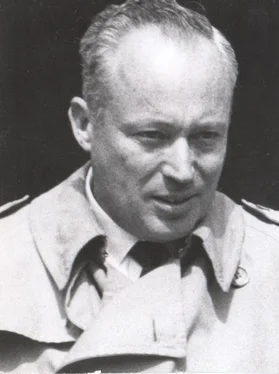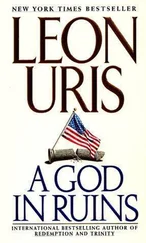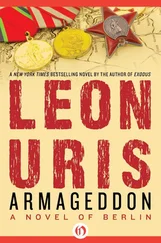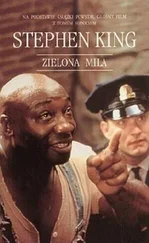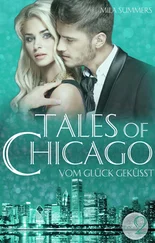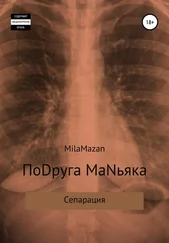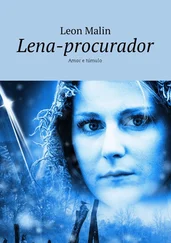Tolek and Chris held the head of Ana, who was unconscious from falling into the water.
Wolf crawled away alone, counting each step carefully until he came to a large Kanal. He was utterly confused, for the Twarda Street line veered into the system at an angle. He could not understand. They were more than a mile away from the designated Prosta Street manhole and completely confused as to direction, but the big Kanal had ledges and would give them a place to recover their strength.
Wolf retraced his steps and led them to the Twarda main, and they crawled on the ledges and collapsed.
Wolf and Tolek and Chris stayed half awake, trying each in his own mind to comprehend the situation, and the same set of questions crossed their minds without conversation. Had their message to the Aryan side been received? Would someone be waiting for them on Prosta Street ... if they reached Prosta Street?
As commander, Wolf Brandel had other decisions to reach. He tried to reason out their proximity. He guessed rightly that they were under the former little ghetto area which was now largely reinhabited by Poles. The area, he knew, was under close watch of the police because of its proximity to the ghetto. Overhead they could hear motor vehicles and the marching of soldiers. Perhaps we are near Grzybow Square, Wolf thought. It was an assembly point for the Germans to enter the southern end of the ghetto.
Daylight showed through manholes on either end of their ledge. Wolf looked his people over. It was a battle of endurance against exhaustion more than anything at this point. One by one his people had passed out into semi-consciousness. If his guess of location was right, they would now be safe from poison gas and out of reach of the prying sound detectors. The tides were going high again. Water splashed over the ledge. Nothing to do but wait until darkness ... nothing to do but wait.
Kamek’s house in Brodno was the first stop in the underground railway to the Machalin and Lublin forests. Gabriela arrived shortly after the morning curfew was lifted.
“They’re down there!” she cried.
Kamek was unexcitable. He put his hands behind his back and deliberately pieced everything together. “Where are they? We do not know. Neither you nor I got the signal clearly. It could be one of fifteen manholes.”
Gabriela pressed her temples and tried to reason.
“Moreover,” Kamek continued, “both of our trucks are gone. The Gestapo raided our headquarters last night; our people are dispersed.”
The Home Army ... Roman ...”
“We cannot depend upon them. Someone may sell out.”
Gabriela knew he was right. She winced. Kamek, once Ignacy Pownicki, had been a journalist and an ardent supporter of both the ruling colonel’s clique and the reactionary pre-war noblemen’s caste. Events during the war changed his thinking. Humanity overpowered nationalism. Kamek was one of the few who were revolted by and ashamed of the behavior of the Polish people toward the things happening in Poland’s ghettos. He did not embrace the leftists’ philosophy personally, but he joined them, for they were the ones who gave the fullest support to those in the ghetto. Kamek lost his identity as Ignacy Pownicki to immerse himself fully in the underground work of the People’s Guard.
He was a cool man, seeming almost lazily detached from the urgency.
“They’re under there somewhere,” Gabriela mumbled again.
“Keep calm, Gabriela. You and I are the only two who are aware of it and who are left in a position to help. The Jewish Fighters’ leaders all know your address. Certainly they will attempt to contact you. The best thing you can do is go home and wait.”
The cuckoo chirped the hour. “Ah, time for the news.”
Kamek flicked on the radio and closed his eyes to concentrate on the true meanings, for the real news was between the lines and filled with cryptic clues. The war since Stalingrad continued to go badly for the Germans, and their double talk could not fully cover it. There was not a single mention of the ghetto action. This also was a good indication, for they were quick to brag of victories. He flicked off the radio.
Gabriela was already on her feet, walking toward the door.
“Keep calm,” he said once more.
The light filtering through the manholes was turning dimmer and dimmer. Wolf watched it fade. Soon it would be night again. He slipped off the ledge and inched along where the nineteen survivors lay entwined like a net full of freshly caught fish. During the day they had passed out and awakened, slept in snatches and gained back an ounce of strength from what they lost during the terrible crawling of the night before.
Wolf satisfied himself that all of them could be marched again. The instant darkness fell he alerted them to stand by. Soon the movement overhead thinned to silence and then, a break. Ack-ack guns in the distance popped at another Russian air raid. This would keep the Germans busy in the streets.
“Let’s go,” he said.
The water ran chest-high. Wolf first, Tolek second, Chris third, they pushed against the current, moving southward in a direction which they knew was leading them away from the ghetto. Some of the shorter girls had to go up on tiptoes to keep the sewage out of their mouths and noses.
Hand in hand, they inched down the Kanal, hoping desperately to find another arterial. Wolf counted steps.
In three hours, he estimated, they had moved two and a half blocks. Someone was always slipping or collapsing or breaking silence.
And then the luxurious sound of loud rushing water farther down the line met his ears. It meant another large Kanal! This sound spurred the half-dead line of marchers to another effort. The two sewer lines merged in swirls and whirlpools battering together.
Wolf halted the line. From his memory of the maps, he tried to remember where two such intersections merged at such an angle. There was no place like it in the ghetto. A Kanal the size of the one before him must be near the Jerusalem Boulevard area. If so, they were entirely beyond both the big and little ghettos. Wolf decided to gamble with his flashlight. It was soaked and unworkable. Chris had dry matches in a pipe pouch.
A single match sent a dullish yellow glow on the moist bricks. It also revealed the shocking condition of his people. Wolf knew the race for life had to be speeded, more gambles taken. He lit a second match and sloshed nearer the intersection. A third match found him what he was looking for, an iron ladder leading to the street.
“Hold the line still,” Wolf told Tolek and Chris. I’m going up to find out where we are.”
“Wolf ... don’t ...” Rachael cried.
“It will be all right. There’s an air raid going on up there.”
He climbed the ladder and shoved hard to wiggle the manhole cover loose. It gave after a fifth renewal of effort. He held it open just enough to look out to the streets. Good luck! Pitch-black in a blackout! Streets deserted!
“Help me lift this manhole cover.”
Chris, Tolek, and Wolf hung on the narrow ladder and grunted together and dislodged it. Wolf darted for the cover of a building, worked toward the corner, and sprinted back, replacing the lid. He huddled with Tolek. Chris was too occupied holding Ana and Rachael erect. Rachael fainted again. Ana had been in a bad way for hours.
“We are directly under the intersection of Twarda and Zelazna.”
“That means we are just two and a half blocks from Prosta Street.” Would someone from the People’s Guard be waiting for them there? Both agreed that it was a small chance. It was twenty-four hours since they had sent the signal and entered the sewer. Moreover, in daylight this present intersection would be too crowded. Wolf decided to try a push for the quieter Prosta Street and at the same time send Tolek to Gabriela’s flat.
Читать дальше
